There is no way that graph is correct. You're telling me MS hasn't seen a huge spike in revenue from the Zenimax purchase?
You are using an out of date browser. It may not display this or other websites correctly.
You should upgrade or use an alternative browser.
You should upgrade or use an alternative browser.
Wonder if they’ll use this in court…

 www.axios.com
www.axios.com

U.S. lawmakers press Activision, Epic, Valve and more on extremism
Asking game companies what they're doing about a rise of in-game hate
From the lawyer covering the topic…
————————————————————————————————————————————
MLex has a report about the new questionnaire:
Microsoft exclusivity strategies at center stage in EU questions on Activision deal
Microsoft's ability to make Activision Blizzard's content exclusive to its Xbox console, either in full or in part, is at the heart of a new questionnaire from the EU's competition enforcer seeking to drill into the effect of the software giant's $69 billion takeover, MLex has learned.
Assuming that Activision Blizzard's content becomes exclusively available on Xbox, which of the three main console makers — Sony, Microsoft and Nintendo — would have the most attractive content, the European Commission asks in the 91-page questionnaire.
Which "partial" exclusivity strategies would Microsoft have the ability to engage in? Might it degrade the quality of Activision Blizzard content on rival consoles, or might it rather worsen the interoperability of the content with other consoles?
Or could it engage on another strategy such as providing upgrades for Activision Blizzard's titles on Xbox but not on other consoles, raising wholesale prices for rivals, delaying releases or making some features exclusively available on Xbox?
The watchdog said it was worried Microsoft may have the ability and incentive to prevent rivals from distributing Activision Blizzard's games or worsening their terms and conditions of access. It also said it was concerned Microsoft could restrict rival game subscription services or cloud gaming services' access to its games.
The questionnaire also asks how important it is for consoles to offer a full catalog of the most popular games in order to compete. Do they need to have a catalog across multiple genres or even a catalog of shooter games?
More broadly, does Microsoft compete most closely with Sony or Nintendo, or both? Which of the two competes most closely with Microsoft's Xbox in the distribution of console games, or do they both do so equally?
Further questions ask about the prevalence of cross-play in the gaming industry, where gamers play against others on a different console. Are there technical barriers to offering those services?
In its latest questionnaire, the commission asks games publishers about their distribution agreements with consoles and the advantages or disadvantages of making a blockbuster game exclusive to a certain console.
If a large proportion of PlayStation users switched to another console, would this change a developer's incentive to make games for PlayStation? How many users would have to switch for a developer to no longer have an incentive to make PlayStation games?
Other questions seek to determine what impact the deal would have on rival game subscription services and cloud gaming services, and how markets for these services are likely to develop in the next five to 10 years.
What time and resources are necessary to start providing a cloud game streaming service? What are the main factors of competition between such services, and how likely are consumers to subscribe to more than one service at once?
The commission wants to know what would be the impact on competition if the Activision Blizzard catalog was to become available on a cloud gaming service.
Other questions focus on the impact the takeover could have on rival manufacturers of PC operating systems. Is demand likely to increase for cloud gaming services on PCs in in the coming years, in particular on low-end PCs that would not normally be able to run complex games like Call of Duty?
The commission asks if "compatibility layers" can be used to run Windows games on non-Windows PCs. Would Microsoft have the ability to prevent Activision Blizzard's games from being compatible in this way on other operating systems in the future?
Could cloud gaming be an effective way to bring more PC games to non-Windows operating systems, the commission asks.
Should Activision Blizzard's games be only available for streaming on Windows PCs, would this attract additional users to Windows and discourage users from buying PCs with other operating systems?
————————————————————————————————————————————
MLex has a report about the new questionnaire:
Microsoft exclusivity strategies at center stage in EU questions on Activision deal
Microsoft's ability to make Activision Blizzard's content exclusive to its Xbox console, either in full or in part, is at the heart of a new questionnaire from the EU's competition enforcer seeking to drill into the effect of the software giant's $69 billion takeover, MLex has learned.
Assuming that Activision Blizzard's content becomes exclusively available on Xbox, which of the three main console makers — Sony, Microsoft and Nintendo — would have the most attractive content, the European Commission asks in the 91-page questionnaire.
Which "partial" exclusivity strategies would Microsoft have the ability to engage in? Might it degrade the quality of Activision Blizzard content on rival consoles, or might it rather worsen the interoperability of the content with other consoles?
Or could it engage on another strategy such as providing upgrades for Activision Blizzard's titles on Xbox but not on other consoles, raising wholesale prices for rivals, delaying releases or making some features exclusively available on Xbox?
The watchdog said it was worried Microsoft may have the ability and incentive to prevent rivals from distributing Activision Blizzard's games or worsening their terms and conditions of access. It also said it was concerned Microsoft could restrict rival game subscription services or cloud gaming services' access to its games.
The questionnaire also asks how important it is for consoles to offer a full catalog of the most popular games in order to compete. Do they need to have a catalog across multiple genres or even a catalog of shooter games?
More broadly, does Microsoft compete most closely with Sony or Nintendo, or both? Which of the two competes most closely with Microsoft's Xbox in the distribution of console games, or do they both do so equally?
Further questions ask about the prevalence of cross-play in the gaming industry, where gamers play against others on a different console. Are there technical barriers to offering those services?
In its latest questionnaire, the commission asks games publishers about their distribution agreements with consoles and the advantages or disadvantages of making a blockbuster game exclusive to a certain console.
If a large proportion of PlayStation users switched to another console, would this change a developer's incentive to make games for PlayStation? How many users would have to switch for a developer to no longer have an incentive to make PlayStation games?
Other questions seek to determine what impact the deal would have on rival game subscription services and cloud gaming services, and how markets for these services are likely to develop in the next five to 10 years.
What time and resources are necessary to start providing a cloud game streaming service? What are the main factors of competition between such services, and how likely are consumers to subscribe to more than one service at once?
The commission wants to know what would be the impact on competition if the Activision Blizzard catalog was to become available on a cloud gaming service.
Other questions focus on the impact the takeover could have on rival manufacturers of PC operating systems. Is demand likely to increase for cloud gaming services on PCs in in the coming years, in particular on low-end PCs that would not normally be able to run complex games like Call of Duty?
The commission asks if "compatibility layers" can be used to run Windows games on non-Windows PCs. Would Microsoft have the ability to prevent Activision Blizzard's games from being compatible in this way on other operating systems in the future?
Could cloud gaming be an effective way to bring more PC games to non-Windows operating systems, the commission asks.
Should Activision Blizzard's games be only available for streaming on Windows PCs, would this attract additional users to Windows and discourage users from buying PCs with other operating systems?
/cloudfront-us-east-2.images.arcpublishing.com/reuters/HOKJF4RHKVKNJB66UXTS5B2PMA.jpg)
EU regulators quiz rivals on Microsoft tactics after Activision
EU antitrust regulators have asked game developers and distributors if they think Microsoft will block their access to Activision Blizzard's games once it has bought the company, an EU document seen by Reuters shows.
A reference for when the EU dealt with zenimax…
Third, exclusivity strategies are not uncommon and have already been adopted by rival consoles, with video games that performed better than ZeniMax titles.100 Such exclusive games have contributed to drive the success of Nintendo and Sony consoles,101 which have a stronger market position compared to Microsoft's Xbox.102 In this regard, almost all respondents to the market investigation consider that Microsoft currently holds the least attractive exclusive content compared to Sony and Nintendo consoles.103 Exclusive games might influence the choice of a console especially at the stage of the initial console purchase. However, once the choice has been made, players tend to remain loyal to their console, as also indicated in paragraph (120) below. In this regard, a slight majority of respondents to the market investigation pointed to the presence of some degree of player loyalty to the console brand.104 Publishers generally indicated that players tend to remain loyal to a brand once they choose it. Only a few respondents indicated that players are neutral or not loyal. Therefore, it is unlikely that a significant number of current PlayStation and Nintendo console users would switch to the Xbox console as a result of an exclusivity strategy in relation to ZeniMax's games. The Commission considers that these reasons further limit the combined entity's ability to weaken the position of rival console distributors."
Third, exclusivity strategies are not uncommon and have already been adopted by rival consoles, with video games that performed better than ZeniMax titles.100 Such exclusive games have contributed to drive the success of Nintendo and Sony consoles,101 which have a stronger market position compared to Microsoft's Xbox.102 In this regard, almost all respondents to the market investigation consider that Microsoft currently holds the least attractive exclusive content compared to Sony and Nintendo consoles.103 Exclusive games might influence the choice of a console especially at the stage of the initial console purchase. However, once the choice has been made, players tend to remain loyal to their console, as also indicated in paragraph (120) below. In this regard, a slight majority of respondents to the market investigation pointed to the presence of some degree of player loyalty to the console brand.104 Publishers generally indicated that players tend to remain loyal to a brand once they choose it. Only a few respondents indicated that players are neutral or not loyal. Therefore, it is unlikely that a significant number of current PlayStation and Nintendo console users would switch to the Xbox console as a result of an exclusivity strategy in relation to ZeniMax's games. The Commission considers that these reasons further limit the combined entity's ability to weaken the position of rival console distributors."
From the lawyer covering the topic…
————————————————————————————————————————————
MLex has a report about the new questionnaire:
Microsoft exclusivity strategies at center stage in EU questions on Activision deal
Microsoft's ability to make Activision Blizzard's content exclusive to its Xbox console, either in full or in part, is at the heart of a new questionnaire from the EU's competition enforcer seeking to drill into the effect of the software giant's $69 billion takeover, MLex has learned.
Assuming that Activision Blizzard's content becomes exclusively available on Xbox, which of the three main console makers — Sony, Microsoft and Nintendo — would have the most attractive content, the European Commission asks in the 91-page questionnaire.
Which "partial" exclusivity strategies would Microsoft have the ability to engage in? Might it degrade the quality of Activision Blizzard content on rival consoles, or might it rather worsen the interoperability of the content with other consoles?
Or could it engage on another strategy such as providing upgrades for Activision Blizzard's titles on Xbox but not on other consoles, raising wholesale prices for rivals, delaying releases or making some features exclusively available on Xbox?
The watchdog said it was worried Microsoft may have the ability and incentive to prevent rivals from distributing Activision Blizzard's games or worsening their terms and conditions of access. It also said it was concerned Microsoft could restrict rival game subscription services or cloud gaming services' access to its games.
The questionnaire also asks how important it is for consoles to offer a full catalog of the most popular games in order to compete. Do they need to have a catalog across multiple genres or even a catalog of shooter games?
More broadly, does Microsoft compete most closely with Sony or Nintendo, or both? Which of the two competes most closely with Microsoft's Xbox in the distribution of console games, or do they both do so equally?
Further questions ask about the prevalence of cross-play in the gaming industry, where gamers play against others on a different console. Are there technical barriers to offering those services?
In its latest questionnaire, the commission asks games publishers about their distribution agreements with consoles and the advantages or disadvantages of making a blockbuster game exclusive to a certain console.
If a large proportion of PlayStation users switched to another console, would this change a developer's incentive to make games for PlayStation? How many users would have to switch for a developer to no longer have an incentive to make PlayStation games?
Other questions seek to determine what impact the deal would have on rival game subscription services and cloud gaming services, and how markets for these services are likely to develop in the next five to 10 years.
What time and resources are necessary to start providing a cloud game streaming service? What are the main factors of competition between such services, and how likely are consumers to subscribe to more than one service at once?
The commission wants to know what would be the impact on competition if the Activision Blizzard catalog was to become available on a cloud gaming service.
Other questions focus on the impact the takeover could have on rival manufacturers of PC operating systems. Is demand likely to increase for cloud gaming services on PCs in in the coming years, in particular on low-end PCs that would not normally be able to run complex games like Call of Duty?
The commission asks if "compatibility layers" can be used to run Windows games on non-Windows PCs. Would Microsoft have the ability to prevent Activision Blizzard's games from being compatible in this way on other operating systems in the future?
Could cloud gaming be an effective way to bring more PC games to non-Windows operating systems, the commission asks.
Should Activision Blizzard's games be only available for streaming on Windows PCs, would this attract additional users to Windows and discourage users from buying PCs with other operating systems?
More from the lawyer covering the topic…
————————————————————————————————————————————
I see that DealReporter has a little bit of more info:
- Questionnaire was sent in mid December, is due this week.
- 90 pages, 250 questions
- Which other AAA shooter games are important for console competitiveness besides Call of Duty, citingOverWatch 2, Battlefield, Apex Legends, Fortnite and Tom Clancy.
- How rival publishers Electronic Arts, Ubisoft, Epic Games, Nintendo and Take-Two compete with Activision.
- When it will be possible to stream complex games like Call of Duty over the cloud?
- The direction of the cloud-gaming subscription services now, in 3 years and in 10 years.
- What games are played most on PC, and whether the majority of games are free-to-play.
- Would gamer demand increase for complex video games like Call of Duty on PCs?
- Technology that allows Windows games to run on rival PC OSs, like MacOS and ChromeOS.
- Are Proton or Wine widely available, used and effective?
2 weeks to answer 250 questions, not bad!
The complaint/lawsuit from 10 gamers/consumers
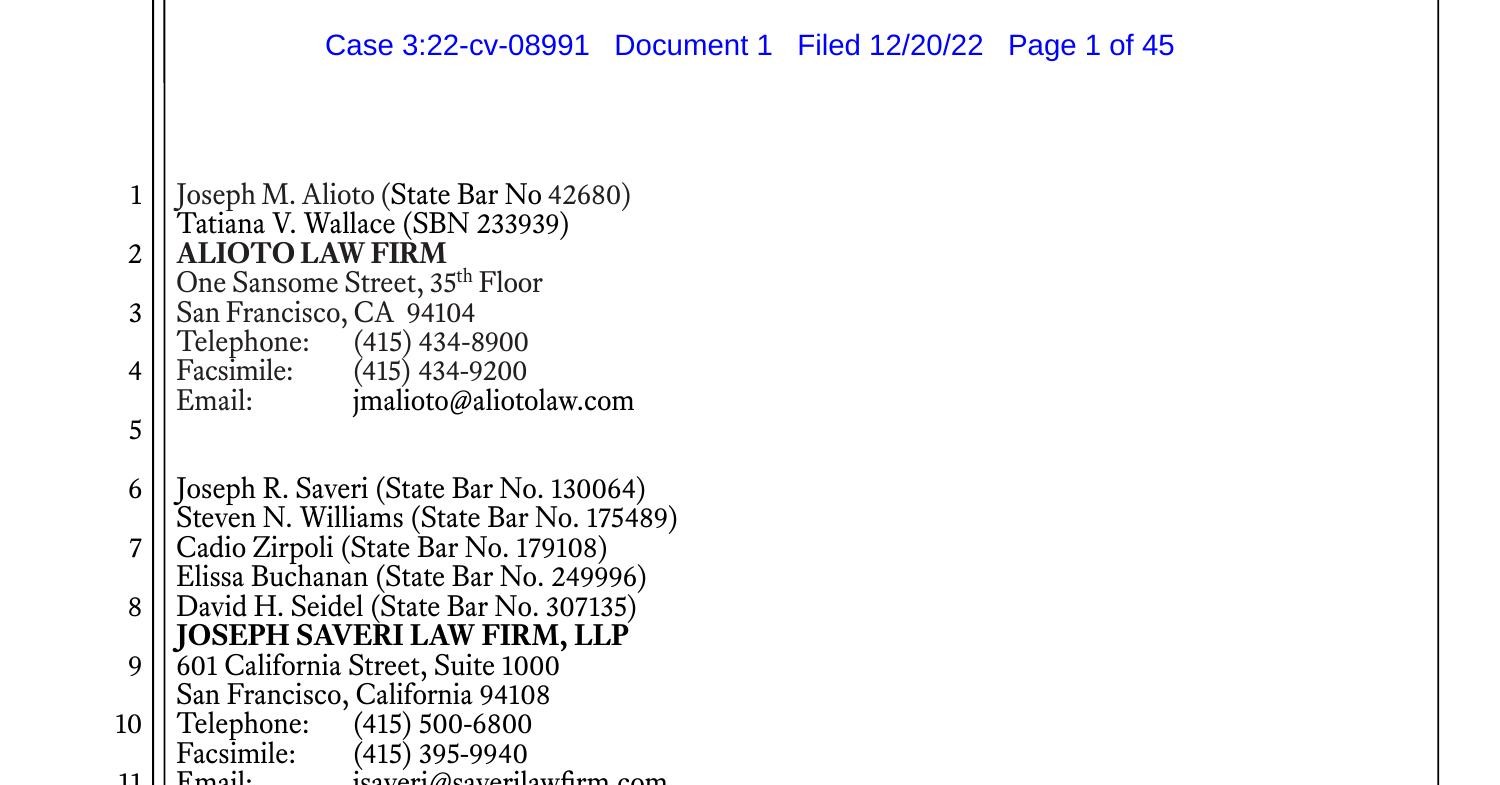
 www.docdroid.net
www.docdroid.net

Consumers_complaint_against_ms_abk.pdf
Case 3:22-cv-08991 Document 1 Filed 12/20/22 Page 1 of 45. 1 2 3 4 5 6. Joseph M. Alioto (State Bar No 42680) Tatiana V. Wallace (SBN 233939) ALIOTO LAW FIRM One Sansome Street, 35th Floor San Francisco, CA 94104 Telephone: (415) 434-8900 Facsimile: (415) 434-9200 Email: jmalioto@aliotolaw.com...
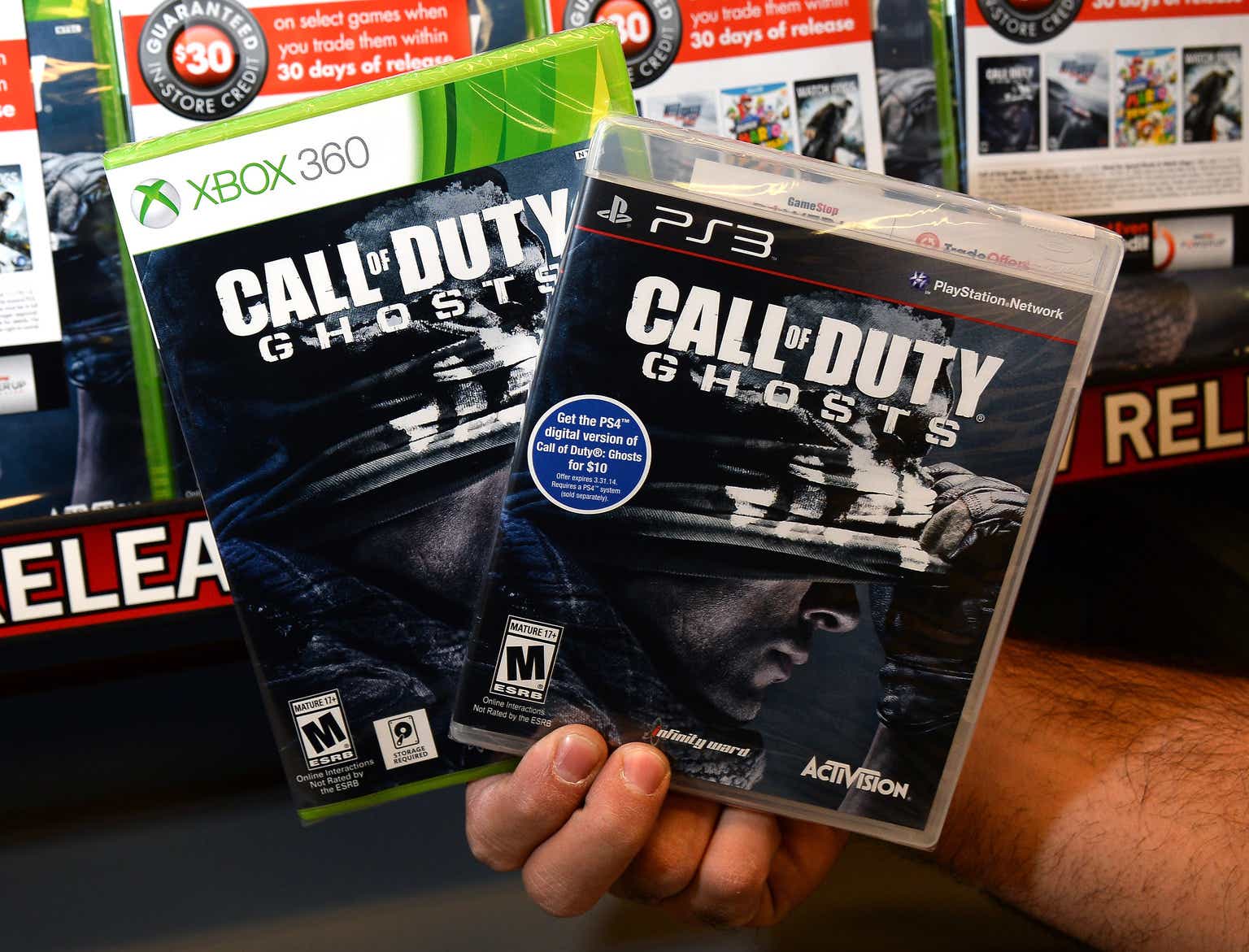
Buy Activision Because FTC Has Little Chance Of Blocking Merger
Microsoft has already declared it will seek to build a case in court revolving around the acquisition of Activision Blizzard being a vertical merger. Click to read.
Summary
- Microsoft has already declared it will seek to build a case in court revolving around the acquisition of Activision Blizzard being a vertical merger.
- There is little legal precedent for blocking vertical mergers, meaning the FTC likely has an uphill task in court.
- The stock is a great buy at these levels, although going to trial would significantly lower ARR.
Ethan Miller/Getty Images News
The FTC's decision to challenge the acquisition of Activision Blizzard Inc. (NASDAQ:ATVI) by Microsoft Corporation (MSFT) was somewhat expected by the market, given the large gap between the agreed price of $95 a share in cash and where Activision's stock is trading now. As a result, some analysts now estimate the chance of the deal closing at 30%. On the other hand, Warren Buffett's Berkshire Hathaway (BRK.B) (BRK.A) bought more than 7.5% of the company following the announcement of the deal, probably betting the deal will close. So who's right?
The FTC Offered Nothing New in Challenge of Activision Acquisition
In my previous article, I discussed what the FTC will look for in evaluating whether the merger could lessen competition, and why the merger will likely close.The very first issue was this:
the agencies would seek commitments from Microsoft that it would not use its acquisition of Activision to advantage Xbox over other competitors. One example of such practices would be to make the Call of Duty franchise available exclusively on Xbox.
There are other issues I thought the FTC would look at, like privacy and working conditions of Activision Blizzard's employees. I thought the exclusivity question was the easiest for Microsoft to deal with, but it was precisely what the FTC focused on in its complaint:
The Proposed Acquisition is reasonably likely to substantially lessen competition or tend to create a monopoly in multiple markets because it will create a combined firm with the ability and increased incentive to use its control of Activision titles to disadvantage Microsoft's competitors. The Proposed Acquisition also may accelerate an ongoing trend towards vertical integration and consolidation in, and raise barriers to entering, the relevant markets.
The FTC is basing its case essentially on the premise that Microsoft will use Call of Duty to preference Xbox over Sony. The complaint says that Microsoft could do that thanks to its ability to:
withhold or degrade Activision content through various means, including manipulating Activision's pricing, degrading game quality or player experience on rival offerings, changing the terms and timing of access to Activision's content, or withholding content from competitors entirely.
A lot of the issues raised in the complaints raised by the FTC were already addressed by Microsoft, which makes its decision to challenge the merger even more puzzling to me.
Why FTC's Complaint Isn't Likely to Win in Court
The first point raised, is that Microsoft can make Call of Duty exclusive to Xbox. This was already covered in my previous article; Microsoft President Brad Smith said the company has no intention to take games off platforms:We'd like to bring it to Nintendo devices, we'd like to bring the other popular titles that Activision Blizzard has, and ensure they continue to be available on PlayStation, and that they become available on Nintendo.
Since then, Microsoft agreed a deal with Nintendo to bring Call of Duty to its console for the next 10 years. This shows clearly that the company has no intention to withhold games from competitors. Microsoft reportedly offered the same deal to Sony, but the Japanese giant rejected it.
Another point, which was not mentioned in the original article, is that Microsoft could change the terms in an advantageous way for the company. One way this would make sense, is if the company included Call of Duty in its Game Pass subscription service. This would certainly preference Xbox, because its users would get the game for $10-$15 a month along with many other games, while PlayStation users would pay as much as $100 just to buy one game.
But as it turned out, Microsoft offered Sony the chance to sell Call of Duty on its own PlayStation Plus. To be perfectly honest, I have no idea why Microsoft would pay $69 billion for Activision. I don't see a clear strategic rationale for the acquisition. Surely entry into mobile gaming and improving the company's gaming subscription service aren't worth that much. Luckily there is no need to figure this out, all that's needed for this investment to workout is for Microsoft to pay the $95 a share to Activision shareholders.
Then the final point, unlike the FTC's claims, Microsoft actually has a history of expanding access to games after acquisitions. The FTC said that Microsoft has a past of making games exclusive despite offering commitments that it won't, citing the company's acquisition of ZeniMax. The European regulator, to which the alleged commitment was made, had to essentially deny the statement, saying Microsoft never offered them such assurances.
Microsoft actually expanded the access to Minecraft, making the game available on Netflix (NFLX) as well as many other platforms and consoles. This will be an easy case for Microsoft to make in court.
What Happens Next in the Microsoft-Activision Merger?
So far, I think the FTC's decision to try and block the merger is meaningless. The trial is set for August 2 of 2023, but the two companies say they expect to close the merger in the first half of 2023, at least two months before the trial. The trial itself doesn't prevent the two companies from closing the merger, for that the FTC has to file for pausing the merger until the original trial is concluded. That is yet to happen.Risks
There are three big risks in my opinion; the first is that Microsoft might willingly decide to walk away from the deal to avoid the headache. The second is that the deal takes longer to close, lowering the merger arb's ARR. If the case goes to court before the two companies can close the merger, then it will likely take another year before there is a verdict, pushing back the merger-close date to August 2024 from June 2023. The third is that one of the regulatory bodies in Europe or China blocks the deal.Cushioning these blows is the fact that Microsoft will have to pay Activision a break-up fee of $3 billion. That would leave Activision with net cash of more than $10 billion. At a market cap of $60 billion, there is plenty management can do with the cash to make it up for shareholders.
The other reassuring factor is that the stock already seems to be pricing-in the merger not going through, so there might not be much downside at the current price. The stock fell 1.5% on Dec. 8 when reports came out that the FTC will block the deal. A survey from Seeking Alpha showed that 14 analysts believe the stock would be at $71 if the deal fails to go through, which isn't the worst risk-reward.
Conclusion
The FTC's challenge of the Activision-Microsoft merger, if successful, will set a new legal precedent. This means that the challenge is unlikely to be successful. Microsoft has already addressed the FTC's concern regarding potential exclusivity of Call of Duty. Investors who buy ATVI are likely to get $95 a share from Microsoft, the risk is that the trial would delay the closing date by a year at least, lowering the ARR. In a worst-case scenario where the deal doesn't close, Activision will get a $3 billion break-up fee and will have a net cash position of $10 billion that it can use to appease investors. The stock also seems to be pricing-in the deal not closing, evident by the lack of volatility when news hit of FTC's decision to challenge the merger.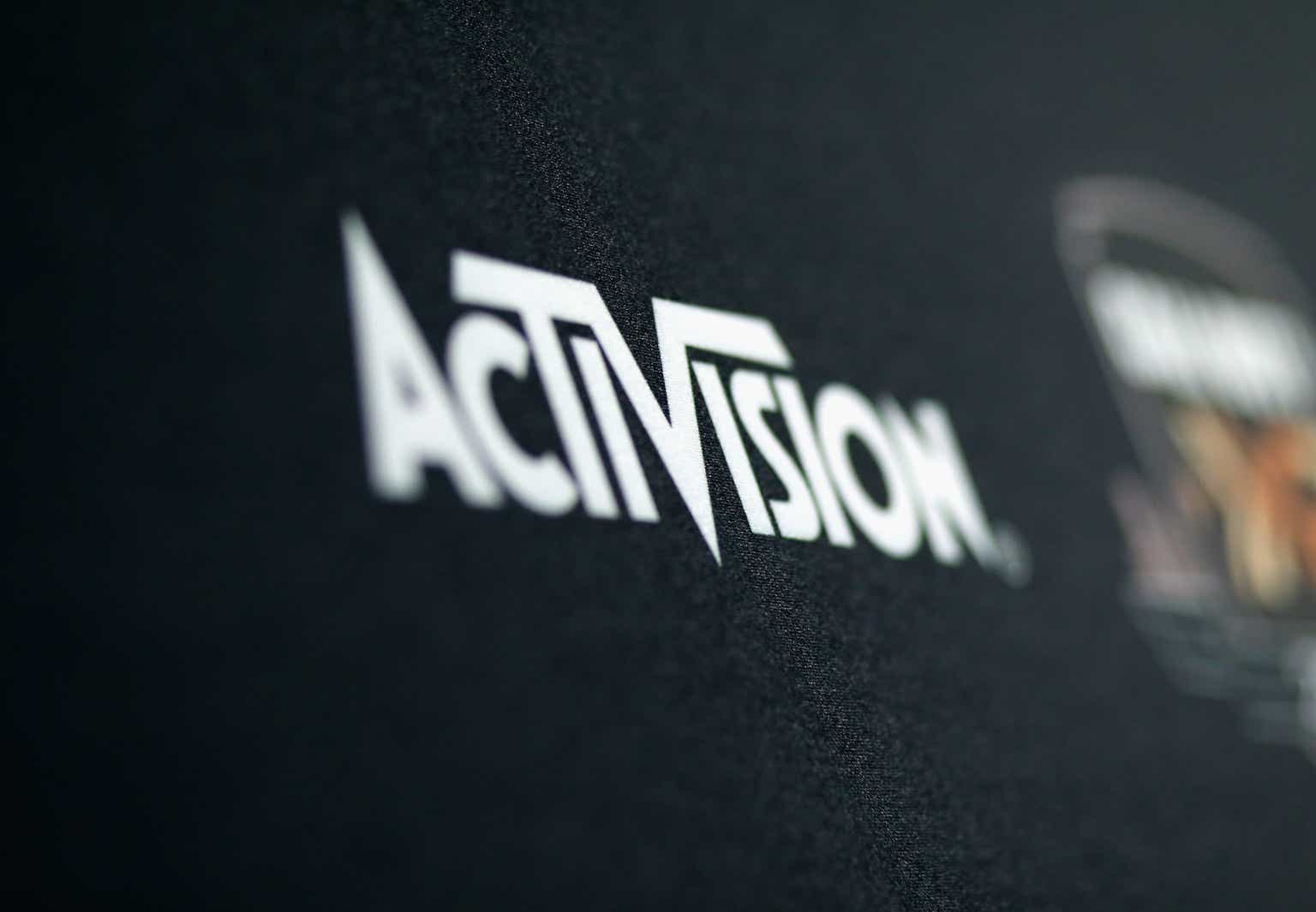
Market Is Betting Activision Blizzard Acquisition Will Go Through (NASDAQ:ATVI)
Activision Blizzard is trading at a substantial discount to the proposed acquisition price. Read more to see why I rate ATVI stock a buy.
Summary
- The FTC recently filed suit to block Microsoft from acquiring Activision Blizzard.
- ATVI is continuing to deal with the fallout from a dysfunctional corporate culture.
- ATVI is trading at a substantial discount to the proposed acquisition price.
- The Wall Street analyst consensus favors the completion of the deal.
- The market-implied outlook (calculated from options prices) indicates a high probability that the deal will close.
Korea looking into it, findings will be presented next year…
 translate.google.com
translate.google.com
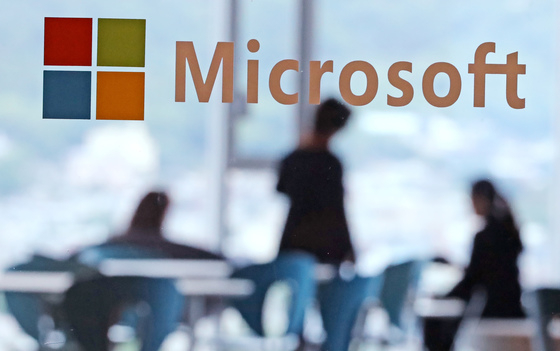
 m.mt.co.kr
m.mt.co.kr
Google Translate
Google's service, offered free of charge, instantly translates words, phrases, and web pages between English and over 100 other languages.

MS-블리자드 M&A 심사만 반년째…韓 공정위 고심하는 이유 - 머니투데이
[세종썰록][세종썰록]은 머니투데이 기자들이 일반 기사로 다루기 어려운 세종시 관가의 뒷이야기들, 정책의 숨은 의미를 전해드리는 코너입니다.마이크로소프트(MS)의 액티비전 블리자드(블리자드) 인수에 대해 공정거래위원회가 독과점 우려 등을 꼼꼼하게 살피고 있다. 미국 IT(정보·기술) 역사상 최대 규모의 인수·합병(M&A)으로 국내 게임 시장에 미칠 ...
'Consumer' lawsuit over Activision Blizzard acquisition more likely to complicate things for FTC than for Microsoft
It is, admittedly, counterintuitive that a lawsuit against a merger may ultimately be better news for the deal than for a party--here, the ...
(Footnote 1)
The CMA received approximately 2,600 emails, but some of these were excluded from our review because they contained abusive content (with no other substantive content), or were blank, unintelligible, stated to be from non-UK consumers, or not in English.
Responses from members of the public
- 2.100 emails reviewed, 3/4 in favor of the merger, the rest against
- There is a list of (14) views in favor and (11) against the deal
- The summary does not represent the views of the CMA
The CMA states:
it is unlikely that Microsoft would make Call of Duty exclusive due to its multiplayer nature. Making Call of Duty exclusive to Xbox would only create a gap in the market that could be filled by a rival cross-platform shooter game;
The CMA received approximately 2,600 emails, but some of these were excluded from our review because they contained abusive content (with no other substantive content), or were blank, unintelligible, stated to be from non-UK consumers, or not in English.
Responses from members of the public
- 2.100 emails reviewed, 3/4 in favor of the merger, the rest against
- There is a list of (14) views in favor and (11) against the deal
- The summary does not represent the views of the CMA
The CMA states:
it is unlikely that Microsoft would make Call of Duty exclusive due to its multiplayer nature. Making Call of Duty exclusive to Xbox would only create a gap in the market that could be filled by a rival cross-platform shooter game;

At least ten people in the states…

Demartini v. Microsoft Corporation, 3:22-cv-08991 - CourtListener.com
Docket for Demartini v. Microsoft Corporation, 3:22-cv-08991 — Brought to you by Free Law Project, a non-profit dedicated to creating high quality open legal information.
that is stupid, what is the point to compete if you have to give up everything and they keep theirs?
(Footnote 1)
The CMA received approximately 2,600 emails, but some of these were excluded from our review because they contained abusive content (with no other substantive content), or were blank, unintelligible, stated to be from non-UK consumers, or not in English.
Responses from members of the public
- 2.100 emails reviewed, 3/4 in favor of the merger, the rest against
- There is a list of (14) views in favor and (11) against the deal
- The summary does not represent the views of the CMA
The CMA states:
it is unlikely that Microsoft would make Call of Duty exclusive due to its multiplayer nature. Making Call of Duty exclusive to Xbox would only create a gap in the market that could be filled by a rival cross-platform shooter game;
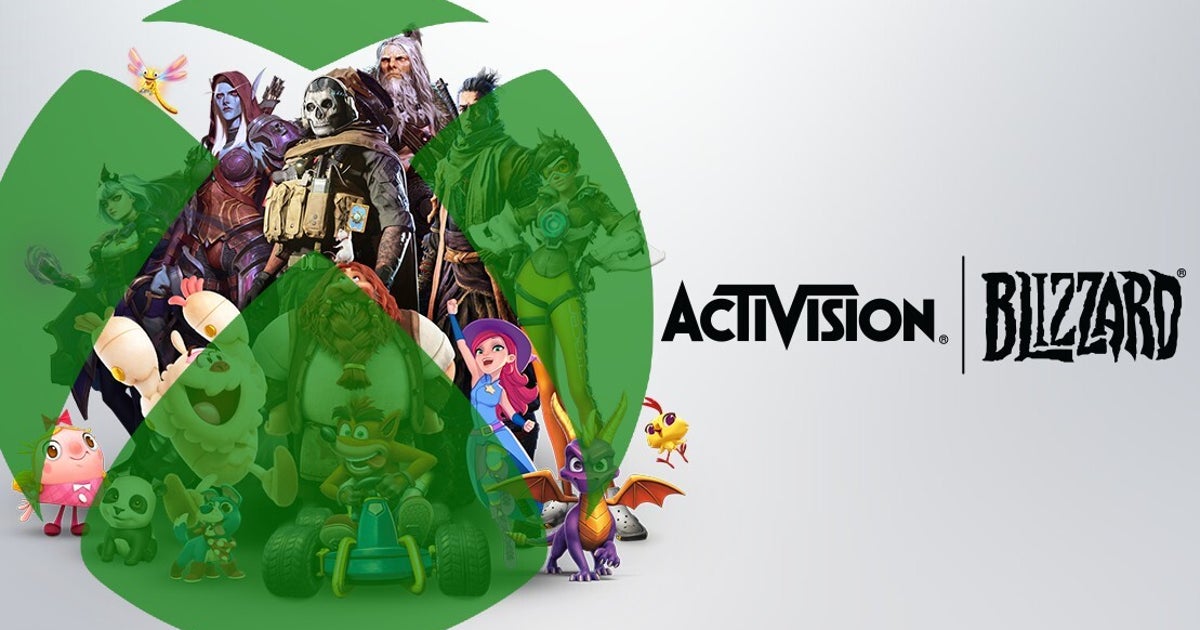
75% of public comments on Microsoft-Activision were in favor of deal, says UK CMA
Roughly three quarters of public comments on the proposed Microsoft acquisition of Activision Blizzard were in favor of…
Funny thing is the UK CMA is/was the most likely to actually go against it and wouldn't even be a possible factor if not for Brexit.
Pffft….We all have menace-uk- to thank
75% of public comments on Microsoft-Activision were in favor of deal, says UK CMA
Roughly three quarters of public comments on the proposed Microsoft acquisition of Activision Blizzard were in favor of…www.gamesindustry.biz
Funny thing is the UK CMA is/was the most likely to actually go against it and wouldn't even be a possible factor if not for Brexit.

Hey! We screwed up our economy. We screwed up our leadership. We destroyed our politics
But we got this acquisition support right. YAY!!
Gaming brings the UK closer together thanHey! We screwed up our economy. We screwed up our leadership. We destroyed our politics
But we got this acquisition support right. YAY!!

Microsoft Gambles on ‘Nice Guy’ Strategy to Close Activision Megadeal
Federal regulators have sued to block the $69 billion acquisition, but the company has settled on a path forward and is preparing to force the issue.
Old news but still relevant…
https://www.ign.com/articles/microsoft-activision-blizzard-acquisition-game-pass-exclusives
https://www.ign.com/articles/microsoft-activision-blizzard-acquisition-game-pass-exclusives








